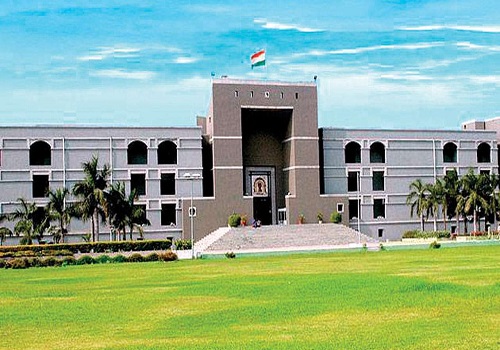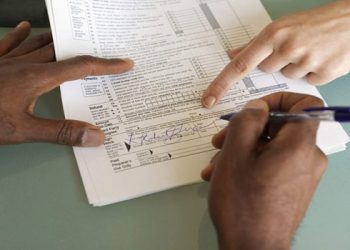The Below judgement has been passed by Hon’ble Gujarat High court in case of TRUST FOR REACHING THE UNREACHED THROUGH TRUSTEE, NIMITTABEN N BHATT Versus COMMISSIONER OF INCOME TAX (EXEMPTIONS), AHMEDABAD [R/SPECIAL CIVIL APPLICATION NO. 9370 of 2020] Dt. 22.12.2020.
Facts of the case:
The writ-applicant seeks to challenge the order passed by the respondent dated 26th August 2019 under Section 119(2)(b) of the Income Tax Act, 1961 (for short, ‘the Act 1961’), rejecting the application filed by the writ-applicant for condonation of delay in filing the Form no.10 of the Act 1961 for the Assessment Year 2014-15.
It is the case of the writ-applicant that being a public charitable trust, it is registered with the Charity Commissioner as well as with the Income Tax authorities under Section 12A of the Act 1961 past more than 30 years. The books of accounts of the writ-applicant are being audited regularly and the return of income is also filed without any issues.
The auditor of the writ-applicant filed the audit report in the Form no.10B under Section 12A(b) of the Act 1961 on 1st September 2014. The writ-applicant had also filed the return of income for the Assessment Year 2014-15 on 27th September 2014. However, as there was some defect, the writ-applicant filed a revised return of income for the Assessment Year 2014-15 on 22nd November 2014, declaring the total income NIL and claiming refund of Rs.1,92,850 after declaring exemption of Rs.73,43,699 under Section 11(1) of the Act 1961 and Rs.17,50,000 under Section 11(2) of the Act 1961.
The document was required to be confirmed by the writ-applicant using the online account. Unfortunately, the trustees of the trust failed to confirm the same and, as a result, the audit report did not get e-filed along with the return of income.
It is the case of the writ-applicant that the return of income was processed under Section 143(1) of the Act on 14th January 2016 by the respondent, rejecting the benefit of exemption to the writ-applicant and a demand notice for Rs. 2,17,210 came to be issued. The notice referred to above stated the reason for demand on account of non e-filing of the Form no.10 along with the return of income and suggested that the same may be filed with a request to condone the delay.
On receipt of the demand notice referred to above, the writ-applicant e-filed the Form no.10 claiming exemption under Section 11(2) of the Act 1961 for Rs.17,50,000 and requested to condone the delay in filing the Form no.10 vide letter dated 11th February 2019 addressed to the respondent.
Submission of the applicant:
Applicant trust submitted that the Form was not filed within due time due to factors beyond it’s control and when it came to the notice of assessee same was filed accordingly and respondent should have taken a liberal view on the condonation application filed by the assessee.
Submission by the respondent:
The respondent submitted that revenue had all the powers to reject the application and based on the facts on record there was no reason for allowing such condonation.
Further, the facts of the judgement relied upon by the assessee are different from the case on record.
Also, respondent request the court that if the plea of assessee is accepted and it is granted condonation then in that case, revenue should be allowed to check the claim of assessee as the normal time limit for conducting assessment has expired.
Finding and ruling by High Court:
High court found out that assessing officer had rejected the plea of assessee under section 119(2)(b) stating that assessee has not had any genuine hardship and the trust was well informed about the rules as the trust was in existence for quite a long time.
Non-filing of Form 10 before claiming deduction/ exemption under 11(2) or not filing Form 10 before filing return of income was just a deliberate ignorance and not genuine hardship.
The court went through various judgements of various High Courts to bring out the meaning of genuine hardship which is just not facing any difficulty but it also means a person cannot take advantage of his own wrong.
Lastly speaking about the wide powers that Central board has by section 119 of the Income tax act, Court stated that Technically, strictly and liberally speaking, the respondent might be justified in denying the exemption under Section 12 of the Act by rejecting such condonation application, but an assessee, a public charitable trust past 30 years who substantially satisfies the condition for availing such exemption, should not be denied the same merely on the bar of limitation especially when the legislature has conferred wide discretionary powers to condone such delay on the authorities concerned.
This Court took the view that the benefit of exemption should not be denied merely on account of delay in furnishing the same and it is permissible for the assessee to produce the audit report at a later stage either before the Income Tax Officer or before the appellate authority by assigning sufficient cause.
It is declared that the writ-applicants are entitled to seek exemption under Section 12 of the Act. However, as
fairly submitted by respondent, the grant of benefit of exemption under Section 12 of the Act shall be subject to Section 143(2) and Section 142(1) respectively of the Act 1961.
To download full order CLICK HERE.




![[Live] Updates and Tax changes for Budget 2023 | Tax on cryptocurrency | Income tax and GST udpates in Budget 2023 [Download Bill]](https://www.taxontips.com/wp-content/uploads/2023/02/Budget-2023-350x250.webp)








![[Live] Updates and Tax changes for Budget 2023 | Tax on cryptocurrency | Income tax and GST udpates in Budget 2023 [Download Bill]](https://www.taxontips.com/wp-content/uploads/2023/02/Budget-2023-120x86.webp)

